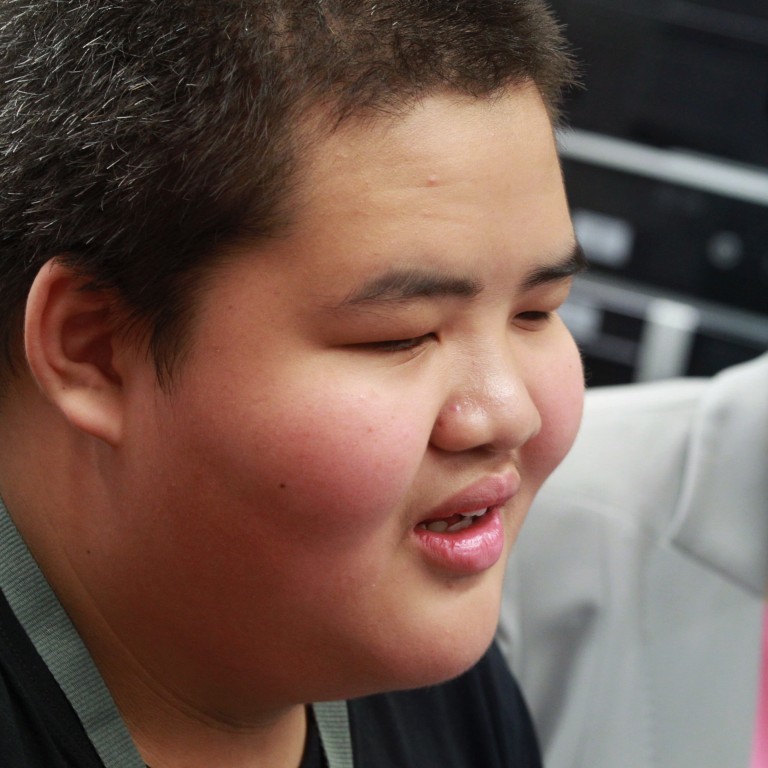
Undocumented boy seeking abode in Hong Kong is being used as a political pawn
Albert Cheng says Chan Yuen-han's high-profile approach is not helping the boy's case, but creating divisions among her political rivals as polls near
A 67-year-old woman living on old-age allowance has turned to a pro-Beijing legislator as a last resort to seek right of abode for her grandson. As events unfold, she is probably realising she is in the wrong hands.
Chow Siu-shuen has been taking care of her grandson, Siu Yau-wai, for nine years after his parents abandoned him on the mainland. She brought him to Hong Kong from Shenzhen when he was three using another child's identity and a two-way exit permit, which allows for only a short stay.
She became worried after reading about a 15-year-old girl without legal documentation who jumped to her death last month. Chow is desperate to have Yau-wai's status resolved before she becomes too old to care for him.
The file landed on the lap of lawmaker Chan Yuen-han, a leader of the Federation of Trade Unions. She quickly called a press conference to publicise the case. That was followed by a media tour of a school which agreed to assess the boy's academic aptitude.
Chan has been accused of taking advantage of the weak for her own political gain. In response, the unionist justified the high-profile tactics on the grounds that she wanted to exert maximum pressure on the authorities to act in favour of the pair.
As a former legislator, I am shocked by Chan's insensitivity. The proper way to handle such a request for assistance is first to ascertain the facts. In this case, there is no legal ambiguity. Yau-wai was born in mainland China and his parents are not Hong Kong residents. He is therefore not entitled to permanent residency under the law. Meanwhile, his grandmother is liable to prosecution for harbouring an illegal immigrant.
The only way out is to plead for clemency. Chan should have explained to Chow the possible dire legal consequences and could have alerted the relevant authorities in confidence. This would have given officers more room for manoeuvre while assessing the case. The well-being of the old and the young should take precedence over any political calculations. In this case, their identities should have been kept secret to safeguard their interests.
Instead, Chan has put her clients, the authorities and, of course, herself in the full glare of news cameras from the start.
Her move has backfired. A public campaign is now under way to press the authorities to act in strict accordance with the law to deport the boy and prosecute the grandmother. The online debate has been hostile.
Hong Kong's laws on permanent residency have evolved into their present form as a result of a series of contentious legal battles. The way the Immigration Department interpreted Article 24 of the Basic Law, which prescribes who qualifies as permanent residents of the Hong Kong Special Administrative Region, was repeatedly challenged after China resumed sovereignty in 1997. The government sought an interpretation of the article from the National People's Congress, after the Court of Final Appeal quashed an Immigration Department decision in 1999.
In Yau-wai's case, he is clearly not entitled to permanent residency. The noise demanding the authorities to enforce the law is so loud that it has become difficult for officials to do anything else. Ironically, Chan is an honorary president of an Immigration Department union. It is embarrassing, if not awkward, for her to ask the department to go easy on Chow and Siu.
Of course, numerous conspiracy theories have surfaced. For example, presumably, an image of helping a mainland child would sit well with the large number of new immigrants from the north over the years; it is vital for Chan and other pro-Beijing forces to consolidate support from these "non-locals".
Critics also suggest Chan might have deliberately tried to incite the "nativist" activists who tend to be anti-China on all fronts. These radical groups have indeed been jolted into action, staging a protest in the public housing estate where the boy and his grandmother lived, forcing them to move to another flat. The protesters even targeted the school to which Yau-wai went for his academic assessment. One student, frightened by the rowdy protest outside her school, cried in front of the press cameras.
The conflict between these activists and the pro-establishment camp has emerged as a major campaign issue for the forthcoming district council and Legislative Council elections. The radical groups have denounced the mainstream pan-democratic parties for not being progressive enough. A widening rift between the activists and the pan-democrats will work in favour of groups like the FTU in the upcoming polls.
Given the political clout of Chan and the FTU, it would not be surprising if the authorities backed her appeal after all. However, things would only get uglier should that happen.

